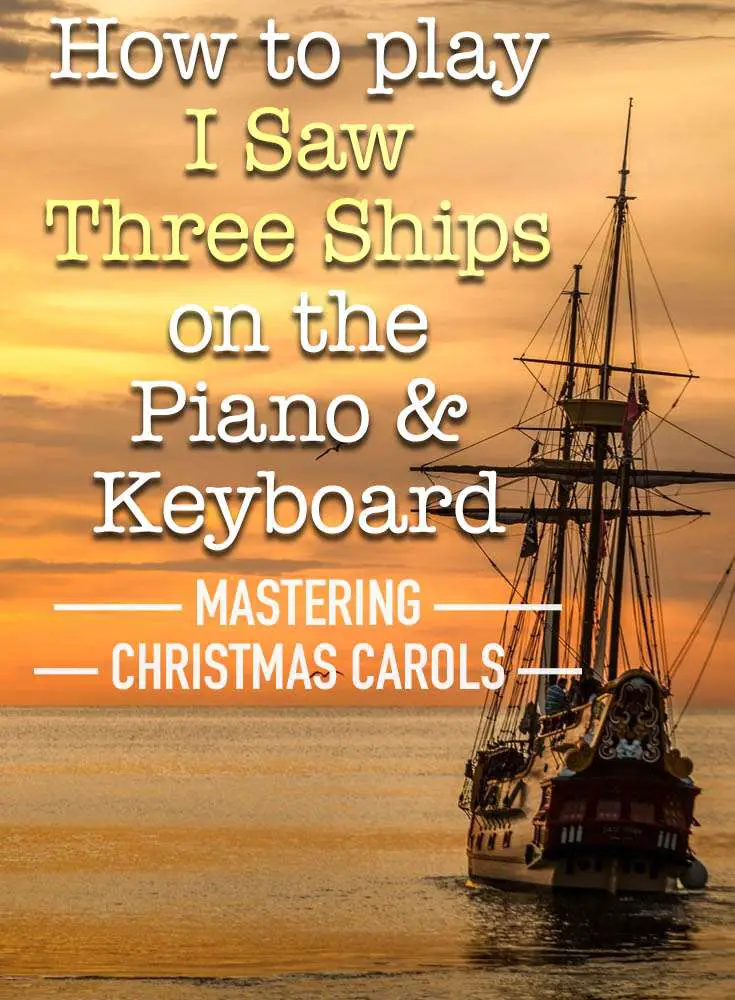So, you’ve been asked to accompany the carol singing at your local school, church, social club, in the community, or even on the streets?
Here are ten tips to ensure you’re prepared and confident for the big day.
1. Be prepared
Most people like to know well in advance exactly what’s expected of them, so find out as soon as you can what you’re being asked to do, what format the carol concert will take, what rehearsals are planned, and how the whole thing will run.
Your stress levels will be lower if you have enough time to prepare for the event.
2. Know your skill and commitment levels
Be honest about your level of proficiency. Presumably, you’ve been asked because someone thinks you’re good enough to play, but don’t be afraid to keep things simple if you’re not confident playing more complicated pieces / arrangements, or if you don’t have a lot of preparation time.
If you’re provided with sheet music, and you know it’s too complicated, ask if there are simpler arrangements available.
Conversely, if you’re provided with chord sheets and lyrics, but you work better from manuscript, ask if you can have that instead.

3. Become friends with the organiser
You need to develop a good working relationship with the organiser of the event so that you can discuss how the event will run, flag any problems, and be kept “in the loop” if there are any new developments.
Particularly for more formal services, such as in a high church where there may be readings, liturgy, etc., the service organiser should be able to offer strong leadership so you’re not worried about when and how you should be performing.
4. Playing, singing, leading?
Are you going to accompany a choir or congregation by simply playing piano/keyboard, or are you expected to sing and play at the same time?
Are you “leading” others through your singing and playing, or is someone else directing from the front, or simply leaving it to the group’s knowledge of the music to carry it through?
Don’t be afraid to say if you’re not comfortable / able to play and sing at the same time. You may be able to work with a vocalist who can lead the rest of the group, leaving you to concentrate on playing the right notes.
5. Solo or group?
Are you going to be playing on your own, or with other instrumentalists? This will affect how and when you practice, what arrangements you use, and may require some diplomacy and group-building skills.
If you’re asked to play in a group and are prepared to either lead, or participate in that, be ready to work at honing musical arrangements and performance, dealing with possible creative conflicts, helping less confident musicians, and ensuring everyone knows what they’re doing on the day.
From my experience, many guitarists find all but the simplest carols (and hymns, too) quite difficult to play and make sound good, not because they’re poor musicians, but because many were composed on and for keyboard instruments. Don’t be surprised if guitarists wish to take more of a back seat when it comes to providing volume/body to carols. Solo instruments (cellos, violins, bass guitar) are often easier to work in, and can sound very good.
6. Singing from the same song sheet
Find out from the organiser exactly which carols are to be sung, obtain all the words, and ensure the same tune is being used (some carols have more than one version, particularly British and American variations).
If you have sourced your own music and/or words, ensure that it fits with what’s printed on the programme/hymnbook. Find out if certain verses are to be missed out, or repeated.
7. Practice! Practice! Practice!
If playing/singing solo, find enough time so you’re confident to accompany/lead the singers.
If working with other musicians, schedule in at least two rehearsals, or as many as required so everyone is confident, plus your own solo practices.
Find out whether you will be able to practice in the venue before the event — this can help to familiarise yourself with how you and/or a group of musicians will sound, particularly if you’ve never played there before.
8. Practicalities
Find out whether you will need to provide your own keyboard/digital piano, or whether an acoustic/digital piano will be provided for you.
If playing and singing outside, ensure there’s protection from the elements for you and your equipment, and a safe way to provide electricity for any amplification.
Ensure you’re able to get yourself and any equipment to the venue in plenty of time to set up, particularly if you’re working with a group, and if you will be using a PA system.
If using PA, find out who is setting it up and ask if there will be time to “sound check” everything, even if briefly.
Ensure that you can hear yourself playing and singing in the venue. See if the volume levels of any audio monitors (speakers) can be set at a slightly higher volume than is necessary, when practising, particularly when a large number of choir/congregation is expected — their singing will drown out or soak up your own sound and you may find it hard to hear what you’re playing.
Ensure you have enough light to be able to read the music/words comfortably.
9. Confidence
Be confident! You’ve been asked to do this, so someone believes in you.
Now you’ve accepted, trust in your abilities. If you’re nervous, don’t over-stretch yourself — play within your comfort zone.
With the right amount of preparation and practice, there’s no reason why the carol concert won’t be a great success.
10. Learn and Grow
After the event (maybe not right away) assess how you thought it went as a musician.
Did everything work as it should have? Were you happy with how you performed? What went well? What could have been better?
Make some notes so that, if you do another event, you’ll be even better prepared.
Have fun!
What tips would you add? Share in the comments below.



